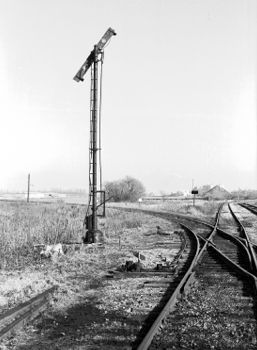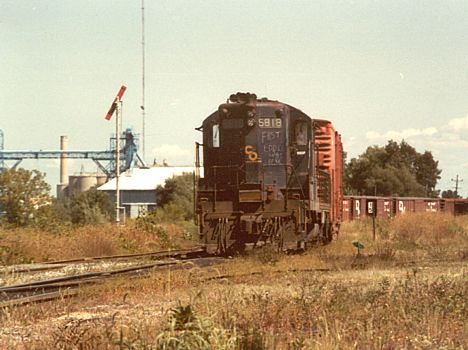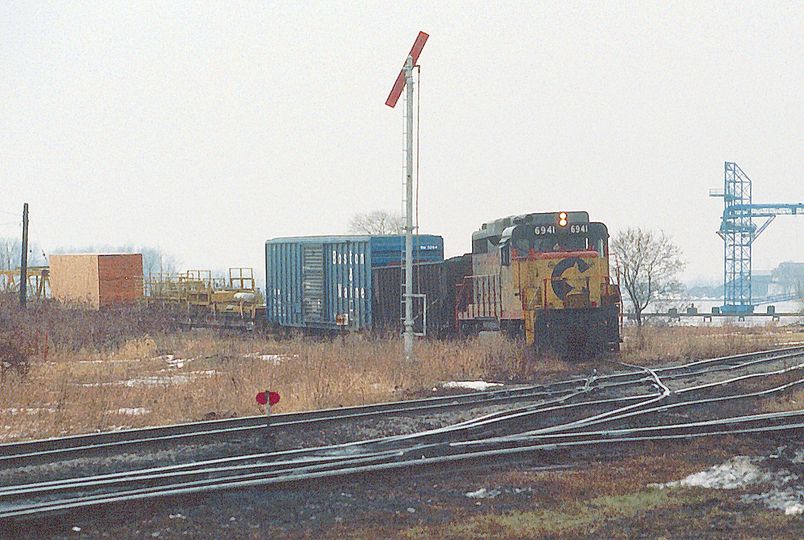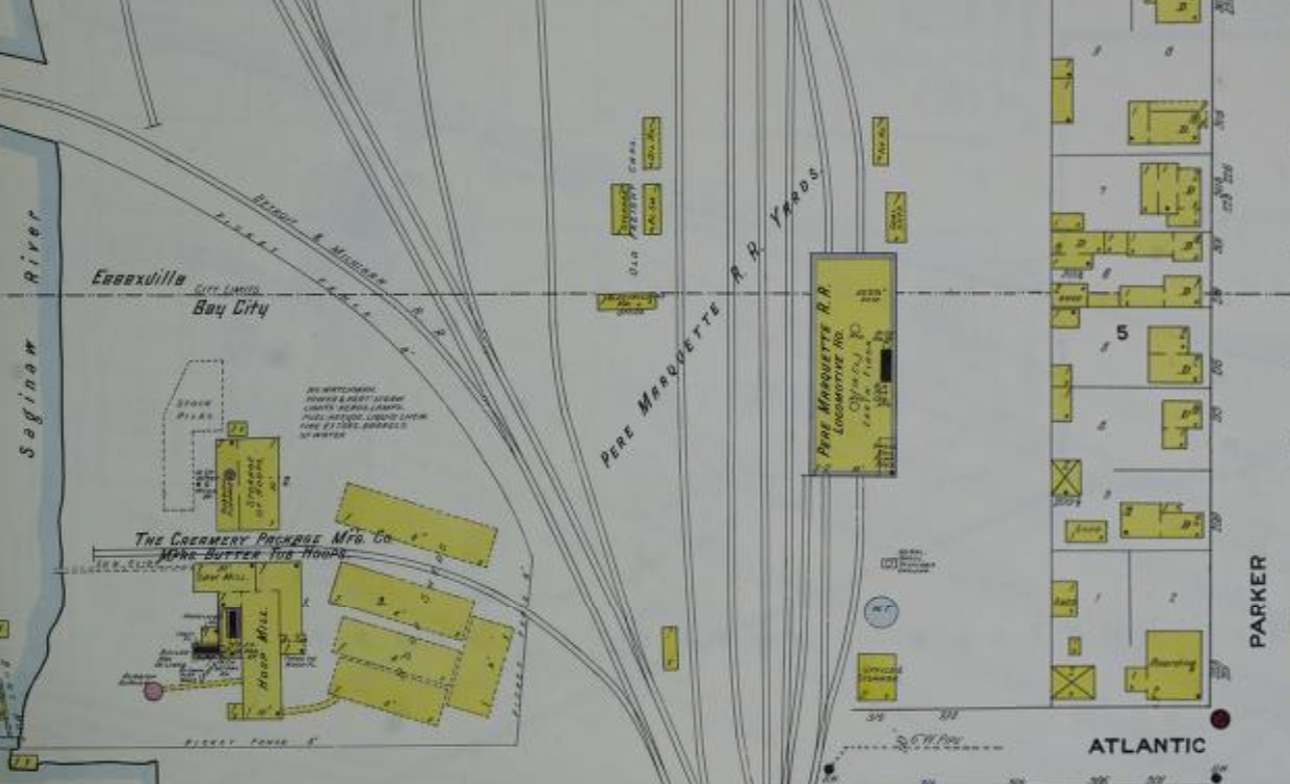- Details
- Hits: 8130
Location: Foss, MI



 When the Detroit & Mackinac railroad built south into Bay City in 1895, they crossed the Saginaw River on a swing bridge they built in conjunction with the Flint & Pere Marguette railroad. Once on the south bank of the river, their line crossed the Michigan Central's Water Street spur and joined what later became the Pere Marquette Belt Line at a place which was later named Foss, or Foss Junction. The name was related to the Foss Lumber company operations nearby. The crossing at Foss was controlled by a horizontal/vertical target signal, originally lighted. The target was normally left in position for the D&M to cross and was temporarily changed by trainmen from the other roads when crossing.
When the Detroit & Mackinac railroad built south into Bay City in 1895, they crossed the Saginaw River on a swing bridge they built in conjunction with the Flint & Pere Marguette railroad. Once on the south bank of the river, their line crossed the Michigan Central's Water Street spur and joined what later became the Pere Marquette Belt Line at a place which was later named Foss, or Foss Junction. The name was related to the Foss Lumber company operations nearby. The crossing at Foss was controlled by a horizontal/vertical target signal, originally lighted. The target was normally left in position for the D&M to cross and was temporarily changed by trainmen from the other roads when crossing.
Image info: Top, looking east, the line going straight east to the left is the New York Central. Parallel to it is the Pere Marquette line to Essexville. The D&M used the PM line up to this point where it branched off to the north (left in the photo) crossing the NYC and then north over the Saginaw River swing bridge. The D&M crossing at this time was a "slip switch" diamond, which was capable of connecting D&M trains with the NYC, or crossing the NYC for a connection to the Pere Marquette. [Robert W. Smith]. 2nd, C&O 5818 is the local Bay City switcher, near the Foss crossing, in the late 1970's. [Dale Berry]. 3rd image, C&O 6931, a GP-30 road switcher, pulls from the D&M via the Saginaw River swing bridge, at Foss in 1985. [Karl Miller]. 4th image, a Sanborn map of the 2-track engine house at Foss in 1912. There is also a water tower next to the engine house. The building on the left along the river is "The Creamery Package Mfg. Co., makers of butter tub hoops. [SBM-1912]
Notes
Time Line
1927. This crossing was protected by a target. Horizontal target allows D&M trains to pass the MC crossing to to enter or leave PM track. [ETT-1927]
Bibliography
The following sources are utilized in this website. [SOURCE-YEAR-MMDD-PG]:
- [AAB| = All Aboard!, by Willis Dunbar, Eerdmans Publishing, Grand Rapids ©1969.
- [AAN] = Alpena Argus newspaper.
- [AARQJ] = American Association of Railroads Quiz Jr. pamphlet. © 1956
- [AATHA] = Ann Arbor Railroad Technical and Historical Association newsletter "The Double A"
- [AB] = Information provided at Michigan History Conference from Andrew Bailey, Port Huron, MI

